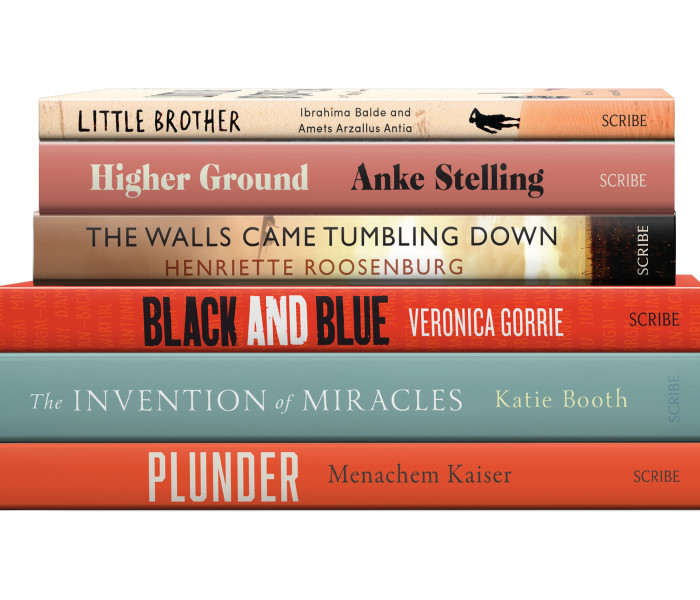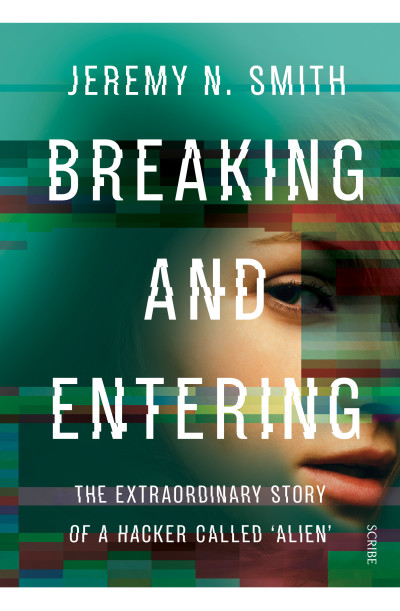‘Booth examines some of our society’s root causes of ableism, and the hearing world’s discrimination against D/deaf people, by giving us a testimony of her Deaf grandmother and linking the discrimination she suffered to the history of Alexander Graham Bell and the propaganda of his oralist teachings, much of which still harms many Deaf and non-verbal people to this day. The Invention of Miracles is a powerful revisionist text, at once personal, historical, and insightful. As someone born deaf with hearing parents, I think I would have benefitted from being born into a world where ableist attitudes were rooted out and understood the way Booth demonstrates here.’
Raymond Antrobus, author of The Perseverance
‘Researched and written through the Deaf perspective, Katie Booth’s The Invention of Miracles is a compelling biography of Alexander Graham Bell, whose lifelong devotion to Deaf education became overshadowed by his harmful promotion of oralism and left a legacy of bruised hands through generations of Deaf people. This is marvellously engaging history that will have us rethinking the invention of the telephone.’
Jaipreet Virdi, historian and author of Hearing Happiness: deafness cures in history
‘Through The Invention of Miracles Katie Booth has introduced me to a whole new world, not just literally but conceptually. In her sympathetic but critical biography of Alexander Graham Bell, she explores the history of power and voice, she exposes the tyranny of the “normal”, and she demonstrates the importance of listening not just speaking. A scholarly and lively biography revealing how a man who spent a life devoted to “liberating” deaf people ended up as one of their greatest enemies.’
Mary Hoban, author of An Unconventional Wife
‘An urgent, provocative, and powerful book. I could never have imagined that eugenics and the telephone were so intimately related. The Invention of Miracles is a timely reminder of the flawed humanity that lies behind so much of our technological innovation.’
Michael Brooks, author of The Quantum Astrologer’s Handbook
‘A meticulously researched and beautifully told story about the power of language and culture and the costs of scientific single-mindedness.’
Gina Perry, author of The Lost Boys
‘Booth does a masterful job weaving this powerful and compelling story, a narrative about fear and obsessive fascination with difference in this wonderful book.’
Brian Greenwald, professor of history at Gallaudet University & co-editor of In Our Own Hands: essays in deaf history 1780 – 1970
‘Engagingly written … Booth’s descriptions of Bell’s passionate courtship of his student Mabel Hubbard, who belonged to a much higher social class, are as stirring as a romance novel, and her narrative of his work on the telephone reads like a thriller … Her meticulous research and rigour are evident on every page … Booth’s anger reflects a current trend of holding people from the past to standards of the present.’
Andrew Solomon, The New York Times
‘Booth paints a textured portrait of a man driven not by an entrepreneurial desire to invent a product that changed the world but by a passion to improve the lives of deaf people. Booth interweaves these two themes into a revealing biography that will enlighten readers … Much of Booth’s biography carefully details Bell’s personal life and his marriage, she does not spare a careful assessment of his theories and politics … Booth has exhaustively researched Bell’s long life in preparation for her biography and provides many invaluable insights and information … an informative and revealing biography.’
David Rosen, The New York Journal of Books
‘As schoolchildren we learn that Alexander Graham Bell invented the telephone. We don’t learn that this is among the least interesting things about him. It takes a book like Katie Booth’s The Invention of Miracles ?to teach us that. Provocative, personal, and exhaustively researched, Booth’s book is the rare biography that completely alters a famous person’s popular image … Booth has the courage and perspective to portray her subject’s deeply flawed humanity, giving the book its poetry and tragic resonance.’
The Boston Globe
‘[A]n impassioned and scrupulously researched account of inventor Alexander Graham Bell’s fraught legacy within the deaf community … Enriched with vivid sketches of Bell's wife, Mabel Hubbard, and other historical figures, including Helen Keller, this revelatory history deserves a wide readership.’
Publishers Weekly
‘Booth, a hearing author who was raised in a mixed hearing/deaf family, expands the picture with a respectful yet critical biography that draws on scholarly research and her years of communicating with deaf relatives through signing … She also links his work to the continuing “institutional oppression” of the deaf … this ardent book is likely to reignite debates over what constitutes justice for the Deaf community. A well-written biography reveals less-familiar aspects of the life of the famed inventor.’
Kirkus Reviews
‘Careful and balanced … Booth explores the progression of Bell's career with compassion and nuance, eliding neither his good intentions nor the lasting harm that his emphasis on orality wrought on generations of D/deaf students.’
Booklist
‘A 400-page volume of superb scholarship.’
Nevil Gibson, NBR
‘Shifting seamlessly between Bell’s professional and personal life, The Invention of Miracles is infused with a marked intimacy due to Booth’s novelistic eye and the way she fine-tunes her antenna to the minutiae of Bell’s life.’
Brendan Daly, Irish Examiner
‘This is a comprehensive biography of a great man. The author admires his work but does not hold back from strong criticism of his ideas on the deaf.’
Frank O'Shea, The Canberra Times
‘How a man committed to helping the deaf could end up as their enemy fascinated Katie Booth, who witnessed the fury his name could provoke in her deaf relatives … Despite her anger, Booth is often sympathetic to Bell. He emerges as brilliant, obsessive, well-meaning but blinkered, a patrician Victorian who believed in the transformative possibilities of science to “cure” or “normalise” the differently abled. His biggest mistake was not to ask deaf people themselves what they wanted.’
Susan Mansfield, The Scotsman
‘Revelatory.’
Susan Mansfield, Scotland on Sunday
‘Katie Booth revisits Bell's legacy, exploring his creative genius and his misguided efforts to eradicate Deaf culture.’
Science
‘In this thoughtful biography, Booth reexamines the historical legacy of Alexander Graham Bell, the inventor of the telephone. Booth acknowledges Bell’s role in helping people communicate, but she does not shy away from his complicated legacy within the Deaf community … A stunning biography that documents the Deaf people’s lengthy and ongoing efforts to have ASL acknowledged as a valid language. Booth's writing stands apart and sheds insight on disability history in the 20th century.’
Jessica Bushore, Library Journal
‘[C]areful and balanced … Booth explores the progression of Bell’s career with compassion and nuance, eliding neither his good intentions nor the lasting harm that his emphasis on orality wrought on generations of D/deaf students.’
Jenny Hamilton, Booklist
‘Booth vigorously revises the historical record … Booth reveals a rich history of heights and depths in The Invention of Miracles, including the questionable patent process that secured Bell’s name in history, the evolution and empowerment of the Deaf community, and Bell’s endearing marriage, which survived his own misguided intentions.’
Priscilla Kipp, BookPage
‘Katie Booth’s brave and absorbing book is the story of a contradictory genius whose inventiveness outstripped his compassion… Booth’s style is highly poetic, even moving … [and] so scrupulously researched you feel like you’re walking alongside the inventor as he strides the Scottish moors or looking over his shoulder as he researches the qualities of different kinds of current in his Boston home.’
Pittsburgh Post-Gazette








